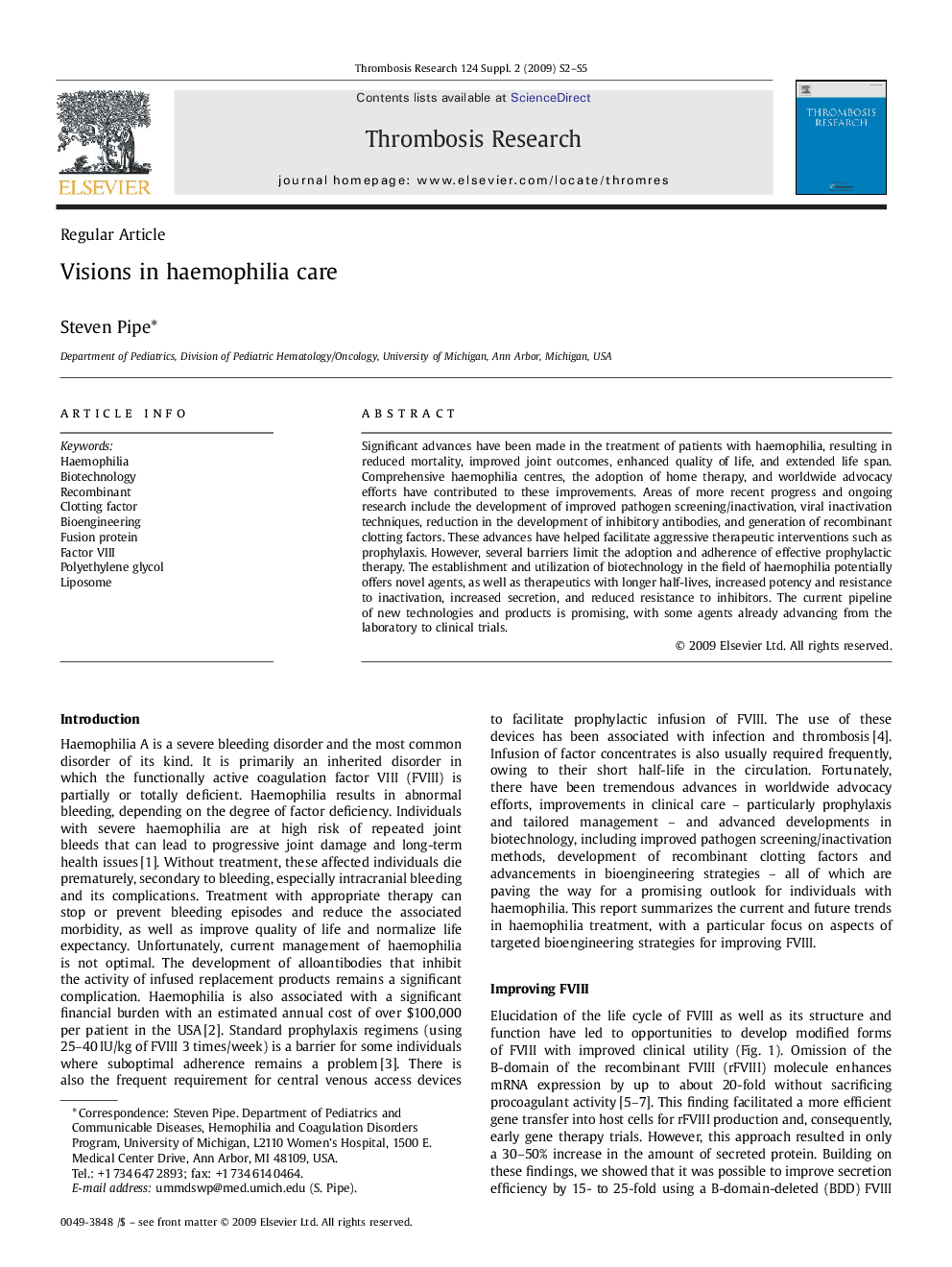| Article ID | Journal | Published Year | Pages | File Type |
|---|---|---|---|---|
| 3029655 | Thrombosis Research | 2009 | 4 Pages |
Significant advances have been made in the treatment of patients with haemophilia, resulting in reduced mortality, improved joint outcomes, enhanced quality of life, and extended life span. Comprehensive haemophilia centres, the adoption of home therapy, and worldwide advocacy efforts have contributed to these improvements. Areas of more recent progress and ongoing research include the development of improved pathogen screening/inactivation, viral inactivation techniques, reduction in the development of inhibitory antibodies, and generation of recombinant clotting factors. These advances have helped facilitate aggressive therapeutic interventions such as prophylaxis. However, several barriers limit the adoption and adherence of effective prophylactic therapy. The establishment and utilization of biotechnology in the field of haemophilia potentially offers novel agents, as well as therapeutics with longer half-lives, increased potency and resistance to inactivation, increased secretion, and reduced resistance to inhibitors. The current pipeline of new technologies and products is promising, with some agents already advancing from the laboratory to clinical trials.
